lessons
Working with Imerman Angels
Zen Caregiving Project is working with the non-profit organization Imerman Angels. Imerman Angels provides comfort and understanding to those experiencing cancer by matching them with a Mentor Angel, a cancer survivor or caregiver who has faced the same type of cancer. ZCP delivered a four-part training to staff on self-compassion and ran a session on grief and loss for the wider Imerman Community on Grief Awareness Day. ZCP will be working with Imerman Angels on future resources around grief for Imerman Angels’ Mentors and Mentees.
We spoke with Executive Director Stephanie Lieber and asked why a focus on grief was so important for her staff and community.
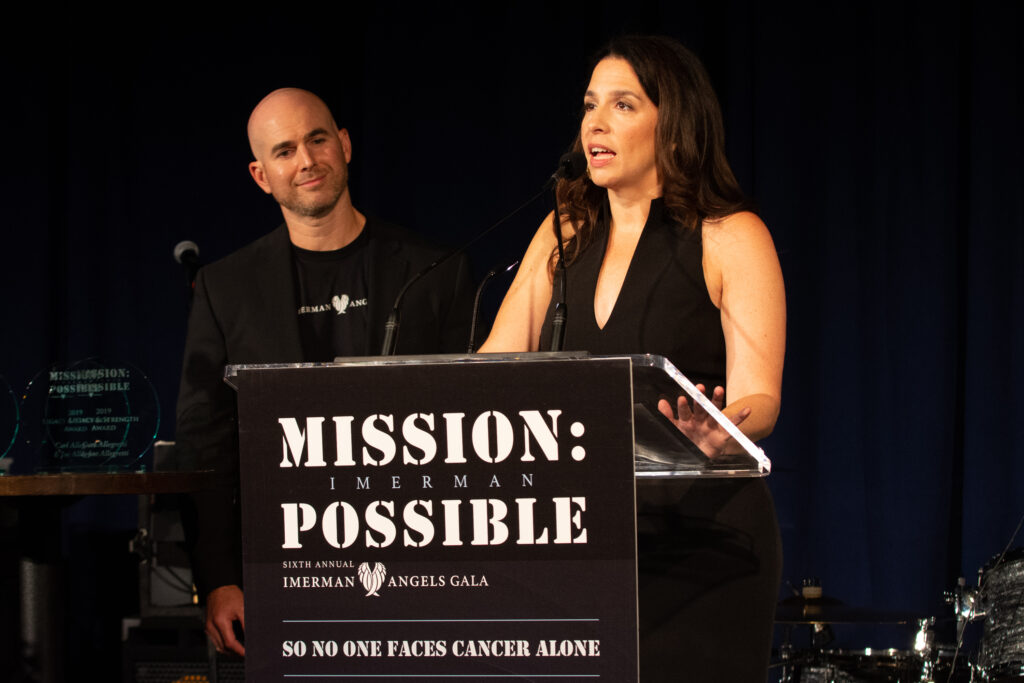
ZCP: Why did you feel it was important to bring in training around grief for your staff and community?
Stephanie: The idea actually didn’t come from me, it emerged from our mentors. Our mentors were coming to us and sharing that they didn’t feel adequately equipped to support their mentees going through grief and loss. They wanted resources to give to their mentees to support them through a range of losses, including loss of confidence in the body, loss of a limb, or loss of a partner. They also often struggled to address the feelings of loss that were triggered for them when supporting their mentees. We needed to equip our community with tools and approaches to support them and to help them support each other.
Hearing this from our Mentors, our Staff team dug in and thought about their own feelings towards loss and grief, along with how we serve our community. In our staff team alone, four staff members have lost loved ones to cancer in addition to others who have survived cancer themselves, or have relatives and friends that they have supported through cancer. It was as part of this focus on grief and loss we reached out to Zen Caregiving Project to work with us on this sensitive and incredibly important topic.
It’s a much bigger conversation than just us at Imerman Angels – people simply aren’t talking about loss and grief openly in society. They may be talking about it in small groups, but they aren’t standing up and saying “I’m grieving“, “I’m still grieving” or “Grieving is hard“. It’s just not a topic and discussion that is culturally and societally welcome.
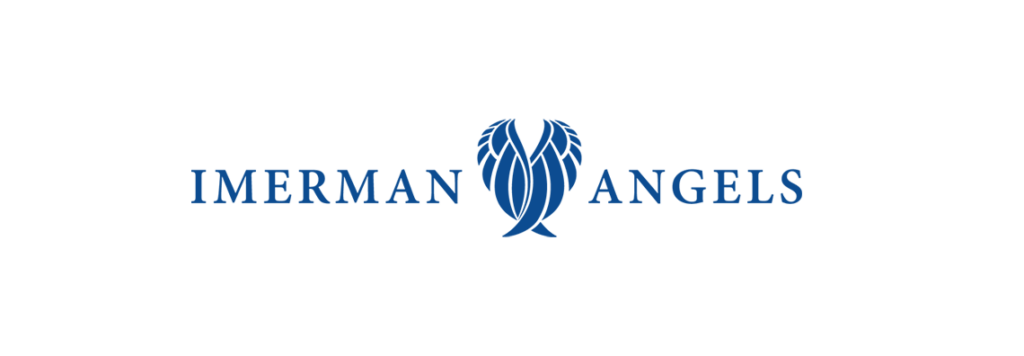
What is the biggest learning you took away from the Staff Training that ZCP delivered?
For me, the biggest takeaway was that our job is not to fix people’s grief. Grief is not something that is meant to be fixed – it’s meant to be experienced. As a support organization, our job is to sit with those who are grieving and be there with them, being with whatever they are feeling at that moment. Roy Remer, who led the training, shared that when supporting others through grief “it’s not what you say, it is how you show up”. You need to show up and just be present for someone, and drop your own agenda of wanting to change things or change how the other person is feeling.
What did you find out about your community from the open session you ran with ZCP for your community on grief and loss?
It was clear from the high attendance and the session feedback we got that we need to be doing more sessions like this. We need to be providing opportunities for open and candid conversations and making these conversations accessible and frequent.
In the session itself, I was surprised and touched by what I witnessed happening in the Zoom Chat. People started sharing about their losses via chat and others in the group responded, built each other up, and said “that sucks, I’m here and I’m listening, your feelings are normal, it takes time to heal”. Right there on the chat was a community of grievers that showed up and listened. That’s what our community is.
On a personal note, my dad died in February of this year and in the two months after his death I would call and apologize to friends who had previously lost a parent as I realized I hadn’t showed up in the way that they needed and would have been most helpful to them. Yes, I drove hours to attend funerals and delivered food, and checked in on them to see they were OK, but I wasn’t just there for them to just be as they were. I didn’t spend time just acknowledging how they felt and being a supportive witness to that. That’s what the people in the chat function did at the session – they showed up.
What elements of ZCP’s approach to loss and grief did you appreciate the most?
I really appreciated Roy’s unique approach to loss and grief. The way that he carefully and thoughtfully wove mindfulness into his explanations and how the approach is geared towards offering people useful tools to use, rather than trying to help or solve their grief.
And along with this idea of “showing up” I also appreciated the emphasis on compassion, and that compassion involves feelings and action. But also learning that an action doesn’t have to be big and loud, sometimes an action is as simple as being present and not saying something.
What are the next steps for Imerman Angels to integrate grief awareness and training into your program?
We never thought of this as a self-contained project. All of what we have learned, and the ideas that have sprung from it, has to be integrated into everything we are doing. We have, for example, run journaling sessions, or yoga classes in the past but in the feedback from the Grief and Loss Session people were suggesting that we run a Grief and Yoga class, or Grief and Journaling class. And of course, that makes sense because essentially everything we do is about loss – not about death – but a huge part of living with and managing cancer is about experiencing loss.
There is no end to this conversation, it has to be an ongoing dialogue with our community to support them and help them open up the conversation to others, even outside of the Imerman Angels community. Because grief is not specific to a particular audience – we all experience loss on a daily basis and are all going to experience grief at some stage in our lives.
For more information on this project or our custom training course and sessions, please contact Sarah at [email protected].
If you like what you read, please join us and enroll in one of our courses, share our work with someone you think will benefit from it, or support us through a donation.
Working with Sutter Health to support family caregivers
This year we began a two-year project in partnership with the Palliative Care Team at the Palo Alto Medical Foundation (PAMF), which is part of the Sutter Health Network. The aim of the project is to introduce support sessions for family caregivers within Sutter Health.
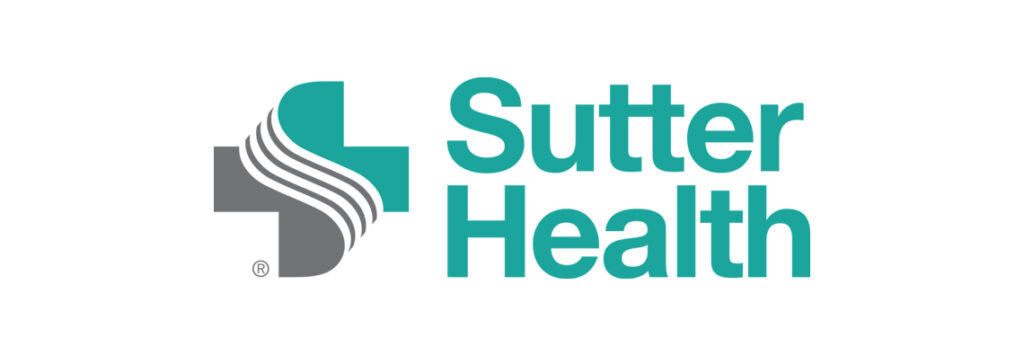
The project began with Zen Caregiving Project (ZCP) delivering four sessions to the Palliative Care Team in Palo Alto and San Mateo. These sessions covered self-care, managing difficult emotions, loss, and maintaining healthy boundaries. The sessions were a way of introducing ZCP’s teaching approach and content to staff, helping them to recommend the sessions to family caregivers in the future, and hopefully also provided support to the staff in their emotionally demanding work.
The next stage of the project will be running our CAREgivers program for family caregivers in Sutter Health. The CAREgivers course consists of six one-hour sessions, run weekly. The sessions are drop-in providing flexibility for the caregivers with their often unpredictable schedules. Each session includes some teaching on a topic, a short guided meditation, activities, and an opportunity for sharing with other caregivers in the group.
We are working with social workers from two Sutter Health locations to recruit for our first pilot course in October and are planning to run another three to four courses in 2022. We hope that these first courses, taught by ZCP instructors, will build awareness and demand for the CAREgivers program among the family caregiver population. Following completion of the ZCP-led sessions, we hope to train Sutter Health staff members in the delivery of the program as part of our established Train-the-Trainer program. In this way, we would ensure the sustainability of the program and continued support for family caregivers.
For more information on this project, CAREgivers, or our Train-the-Trainer program, please contact us at [email protected].
Top tips from running our first CAREgiver course
We have been working with Zuckerberg San Francisco General Hospital (ZSFG) since September 2019; researching, designing, and implementing a Train-the-Trainer program. In this first phase of the project, we trained four staff members, providing them with materials such as lesson plans, videos and handouts, to support them in delivering six mindfulness-based sessions to family caregivers in English. We have named this six-session course CAREgivers. In June, after much careful planning and thought, we ran our first CAREgivers course with family caregivers.
The population at ZSFG is more diverse than neighboring hospitals, has higher rates of people who speak English as a second Language, and has a greater number of patients on Medi-Cal and Medi-Care. Part of our project involved understanding the needs of this population and designing our course to be as accessible and attractive as possible to them. In this blog we share five key takeaways for designing for this audience.
1. Not everyone has Zoom!
At Zen Caregiving Project (ZCP) we have been running all of our programs online since the pandemic, asking participants to join via video call to create a sense of online community. At ZSFG, however, some family caregivers can’t use video calls as they don’t have access to a smartphone or laptop, have limited data for video calls, and/or aren’t comfortable using online technology and software like Zoom.
We have designed the CAREgivers course so that participants can call in via cell, landline, or video call, making it possible for anyone to participate in all activities regardless of how they are calling in. Not all family caregivers use email, so we also have simplified registration to a process that doesn’t require an email address. Additionally, as online polls can’t accommodate call-in participants, we don’t rely on zoom polls to collect data.
2. Don’t ask for too many personal details at registration
Some patients and family caregivers at ZSFG may have uncertainty around their immigration status, or may be undocumented, causing anxiety about sharing this type of personal information with institutions. To address and hopefully reduce any such concern, we have limited the amount of identifying information we ask for at registration and in the course and in marketing materials we emphasize that the courses are a safe space.
3. Recruitment takes time, and lots of effort!
Recruitment was particularly challenging this year. Online advertising of our course via email and social media outreach was limited as some of the caregivers we were trying to reach simply didn’t have email or use social media. Physical flyers and posters in clinic waiting rooms were not as effective as usual as COVID-19 meant many patients either didn’t attend sessions in person, or attended on their own without a family caregiver.
In the end, we had the most luck by building networks within the hospital: clinicians were asked to refer anyone they thought may benefit from the course, and we built awareness of the program through social workers and the long-standing Cancer Awareness Resource and Education program (C.A.R.E). But the key to effective referrals was the hard work of a ZSFG team member who reached out to the referred caregivers, introducing the sessions to them, answering any questions they had, and reminding them when the next session was. This personal connection with each individual caregiver was very important in building the trust of attendees.
Initial sign-up numbers were small but we know that building word of mouth takes time and are confident that this number will grow as awareness of, and trust in, the program increases.
4. Keep language simple
Many of the patients and caregivers at ZSFG speak English as a second or third language. While we will be designing courses in both Spanish and Chinese, we wanted the course in English to be as accessible as possible. We also recognized that some caregivers may read at levels lower than those of the general population. In response, we reviewed all of our materials with an aim to adjust the existing language so that it met an 8th Grade reading level. Instead of talking about boundary encroachment, for example, we talked about crossing someone’s boundaries. Instead of using “melancholy” we used sadness, and instead of talking about cultivating self-compassion we talked about growing or building self-compassion.
5. Mindfulness can support everyone, but don’t assume everyone knows what it is.
For some of us, Mindfulness can feel mainstream. It is mentioned in mainstream media, there are hundreds of apps and programs related to Mindfulness and it is being used in everything from professional sports to kindergarten classes.
It is not, however, so mainstream that everyone knows what it is. In our research with family caregivers at ZSFG there were many who had not heard of the concept, although were interested when it was explained to them.
In designing our course we started with the assumption that our audience didn’t know what Mindfulness is. We worked hard to simplify our explanations, adding an additional session to give time to explain and discuss the approach. We also removed any explicitly Buddhist language like “Sangha” or “Dharma”, and grounded our explanations in real world examples to show how Mindfulness could be practically used in daily life.
Next steps
We will be running our second CAREgivers course later this year, and courses will continue throughout 2022. We also hope to transition to in-person sessions, as the city begins to open up after the pandemic lockdown. To read more about the program please see our previous blog on the start of the project, and the experiences of the Mindful Caregiving Trainees on the project.
Coping with loss, sharing our approach with Curry Senior Center staff
Curry Senior Center is a non-profit in San Francisco dedicated to helping vulnerable, low-income, and homeless seniors through a holistic and integrated care approach. The organization runs a Peer Outreach Program in which Peer Outreach and Drop-in Center Specialists help connect isolated older adults to services and social activities.
Working with a vulnerable older population, the Outreach Specialists often witness their clients experiencing multiple losses, for example, loss of mobility, loss of social connections and loss of their own living spaces as they move to assisted housing. During the pandemic, however, the losses experienced by the staff and clients intensified, with a number of clients passing, and the Curry team also losing a member of staff to COVID-19.
To support their staff with such losses, and to prevent burnout and overwhelm that can accompany such experiences, Curry Senior Center approached Zen Caregiving Project (ZCP) to run two online, interactive sessions on managing loss and grief.
The sessions
Working with loss and grief is a core part of Zen Caregiving Project’s approach to caregiving. When the organization was first established as Zen Hospice Project over thirty years ago, it served people approaching the end of their lives, and provided hospice care. Offering on-going support for persons at the end of life, the organization advanced a Buddhist-inspired approach to working with loss and grief, allowing individuals to both feel the emotions that loss brings, and also build the capacity to sit with the loss and reduce overwhelm.
The sessions for the Outreach Specialists were based on this approach and were taught by Roy Remer, the organization’s Executive Director. Across the sessions he introduced five ways to working mindfully with loss:
1. Loss is universal
It can be comforting to remember that loss is a natural part of being human. While the particular circumstances of loss may differ from person to person, we all experience loss. It is unavoidable. If nothing else, the shared experience of loss is what reminds us that we are connected to everyone else.
2. Understand the value of exploring our feelings on loss
It is important to be aware of how we respond to our own losses, especially as caregivers. When we don’t work on how to process our own losses, it can be difficult to fully support the person receiving our care. Others’ experience and reactions to loss may be triggering for us, and it is hard to untangle the pain and emotion of their loss from the pain and emotion of our own losses.
3. Introducing mindfulness to work with grief and loss
Often our first response to grief is to deny it or turn away from this. Mindfulness techniques can be used to turn toward grief, allowing us to see what sensations and emotions are felt, and what thoughts we are having. Being with the emotions of grief allows for their processing. We can build our capacity to be with strong emotions and over time the emotions will begin to quiet. The sadness of loss may not go away, however, we may begin to find it is not as disrupting or overwhelming. We begin to integrate the loss into the normal rhythms of our life.
4. Building compassion in the face of frequent loss
Caregivers may confront a lot of barriers to expressing compassion – these barriers can sometimes be exhaustion, hunger or frustration, and sometimes it can feel like what we are doing doesn’t make a difference. A deeper understanding of the dynamics of compassion and the ways it can be used enable us to more readily recognize and overcome barriers when they arise. Practicing compassion means also including oneself. Self-compassion is essential for caregivers to build resilience and avoid burnout: “you can’t pour from an empty cup.” (see our free webinar on compassion for caregivers)
5. Inviting conversations about loss with those we are care for
Conversations with care recipients about loss can feel awkward, but there are ways of approaching these conversations that help the other person open up, and feel supported. It is helpful to remember, in the face of loss we are all equals as no one can avoid personal loss and grief. In this regard, we are all alike. This thought naturally brings feelings of empathy and compassion for the person we care for. It is also helpful to notice if you are attached to a particular outcome for a conversation and perhaps let go, trying to meet others where they are at. Maybe the person you care for isn’t yet ready for a big conversation on loss but providing an opportunity, may support them to get more comfortable with it over time.
For a more detailed explanation of these five approaches please see our blog on approaches to loss.
The impact of the sessions
The sessions were deeply moving for all involved, with Curry staff sharing and connecting over common experiences and recognizing their own unique relationship with loss. The feedback we received from the session was very positive and it is our hope that the training will continue to support these staff persons in the important work they are doing in the community, as well as in their own personal wellbeing.
We would like to thank the Curry Senior Center for its holistic and compassionate approach to supporting its staff. For any enquiries on running sessions in your organization please contact us via our enquiry form.
Thank you, Irene!
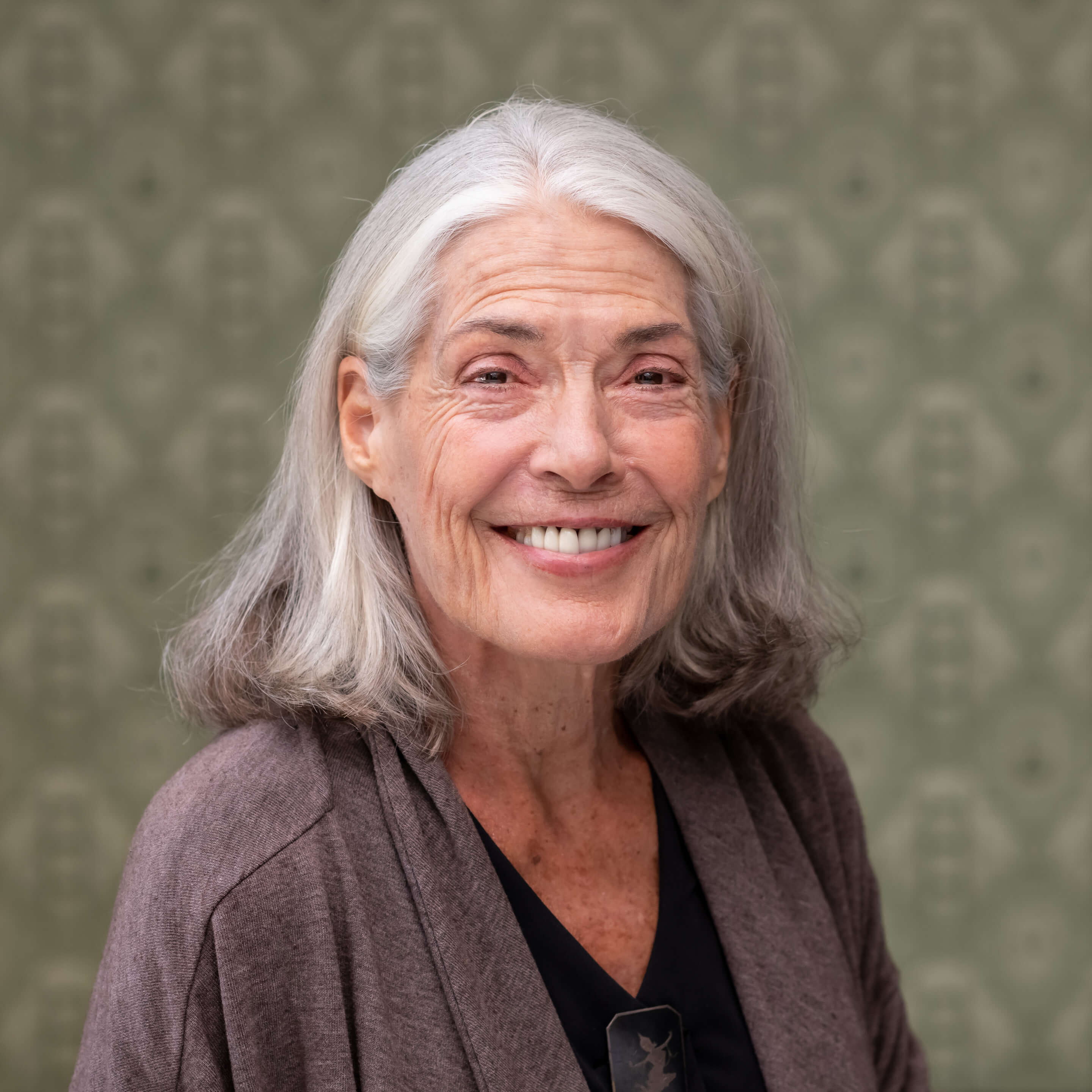
It is with great sadness that we share the news of the death of our teacher, friend, and colleague, Irene Smith. Irene died at home on April 4th, supported by a wide network of devoted friends and volunteers. Her wish was to remain in her Cole Valley apartment of 42 years until the end, and we accomplished that goal.
Irene participated in the first-ever Zen Hospice Project volunteer caregiver training over thirty years ago and joined us for nearly every one since. She generously shared her Touch Awareness practices later with family and professional caregivers as a Guest Instructor in our Mindful Caregiving Education courses. Irene reached a level of extraordinary renown worldwide for her work under the banner of her educational organization, Everflowing.
We will dearly miss Irene’s care, brilliance, gentle gaze, and good humor. You can find out more about memorial services by visiting her Caringbridge page.
Thank you for your service, dear Irene. May you rest in eternal peace
Learnings from 11 years at the bedside
John Rubin was a volunteer with Zen Caregiving Project for 11 years, serving at the bedside in the palliative care ward at Laguna Honda Hospital. He ended his volunteer service in 2020. Here he shares his story, and what he learned over his many volunteer shifts.
“In 2009, I was 72 and had just retired from a long career in business. I was looking for an activity that was different from my previous work and helped others. The Volunteer Program at Zen Hospice Project, as it was then known, seemed the perfect fit. Every Tuesday morning for the next 11 years, I would make my way to Laguna Honda Hospital to visit the residents (patients) of the Palliative Care Ward, never knowing what the morning would bring.
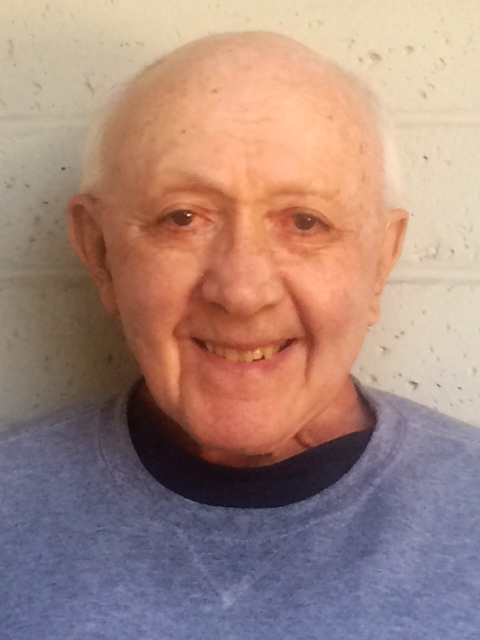
My 11 years with Zen Caregiving Project (ZCP) were rich and wonderful. The many residents I got to know were people I would never have met elsewhere in my life. What a gift to share time each week with them, the hard-working ward nurses, CNAs, and staff, and my many great ZCP shift mates. And so I wanted to share a few things that I learned from the experience, for current volunteers, anyone considering joining or actually, everybody! The experiences on the ward are just a microcosm of our experiences in our wider lives filled with connection, joy, loss and love.
- Bring your whole self to what you do
Volunteering with ZCP is about bringing your whole self to the residents, and leading with an open heart. My best moments volunteering came when I was totally focused on a resident. For example pushing a lady’s wheelchair back to the ward after a morning Baptist church service, while together humming and singing Amazing Grace. In that moment I knew “this is why I’m here today.” It helped me see that I can bring my whole self to whatever I am doing in life, focusing on the “here and now”.
- Drop expectations
Just like in life, it was best not to come to a volunteer shift with a lot of expectations of what you want to have happen, and avoid giving yourself a grade afterwards about how things actually turned out. You learn to just let the day play out, and deal with whatever comes up.
- We have to accept change
I learned a lot about impermanence. No shifts are ever the same. Patients who you get to know well, like to spend time with, and grow to love are going to die. It’s a world of constant flux and change. Everything changes.
- Listen
Our role as a volunteer is to Be With people rather than trying to Fix things that are out of our control. Our value as volunteers comes in just being with people and listening deeply to them. The stories patients share with you are what they want and need to say. Whether they’re true or not, doesn’t matter. What matters is that they are being heard.
- Be yourself
You are unique, and you will do things differently from others. In volunteering, we all had our different approaches – different but no better or worse. Just be yourself and bring energy, warmth, and loving-kindness to everyone you interact with.
- We are all in this together
We’re all in this life together. It’s good to realize that we may be the one in the bed at some future time with someone else being our caretaker. What would we want then?
The ZCP Volunteer Program is currently continuing remotely, with residents speaking with volunteers by iPads.
To read more please see our blog from a volunteer on her experience of connecting virtually and another on how the volunteer experience has helped during the pandemic.


